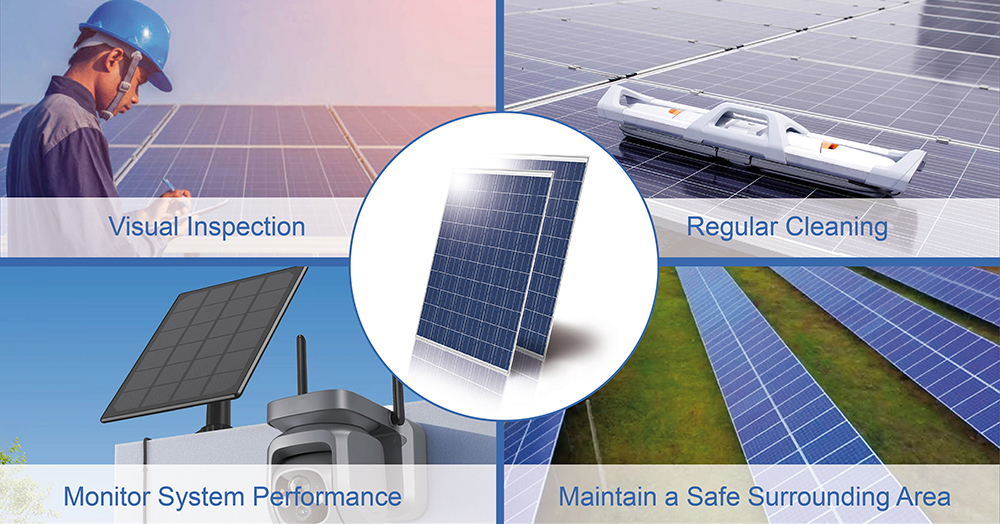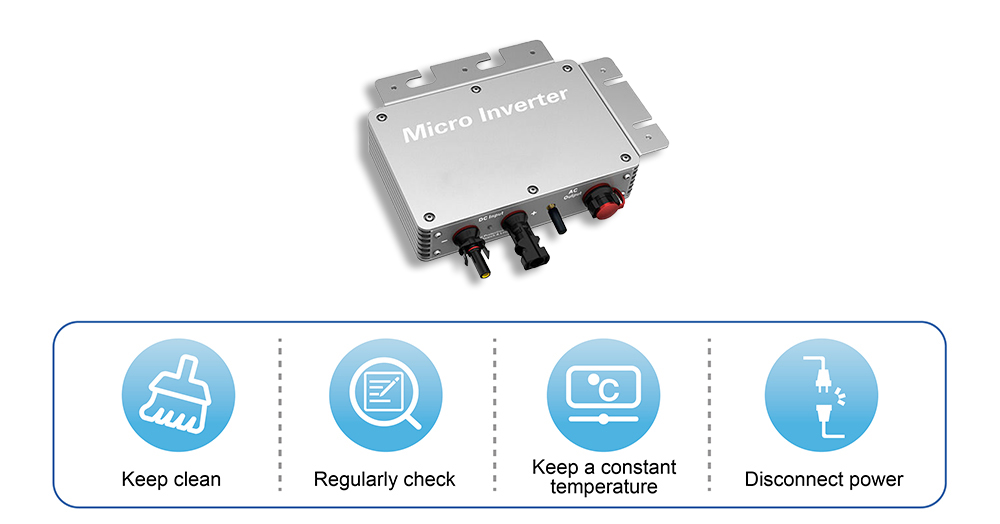Maintenance of Solar Panel and Inverter
Solar panels and solar inverters are essential components of a solar power system, and their proper maintenance is crucial to ensure the system's efficiency and longevity. With the increasing popularity of solar energy, it's important for homeowners and businesses to understand how to maintain these components effectively. In this article, we will discuss the key steps and best practices for maintaining solar panels and solar inverters to maximize their performance and lifespan.
Solar Panel Maintain

- Regular Cleaning. One of the most important aspects of solar panel maintenance is keeping them clean. Dust, dirt, leaves, and bird droppings can accumulate on the panels, reducing their efficiency. Cleaning the panels with water and a soft brush every few months, or as needed, can significantly improve their performance.
- Visual Inspection. Perform regular visual inspections of the panels to check for any visible damage, such as cracks, chips, or scratches. If you notice any issues, contact a professional for repairs.
- Trim Surrounding Trees and Vegetation. Ensure that nearby trees or vegetation do not cast shadows on your solar panels. Trim branches or foliage that may block sunlight from reaching the panels.
- Monitor System Performance. Most modern solar power systems come with monitoring tools that allow you to track the system's performance. Keep an eye on these metrics and consult a professional if you notice a significant drop in output.
- Maintain a Safe Surrounding Area. Make sure the area around your solar panels is clear of debris and obstacles. This will not only improve access for maintenance but also prevent damage to the panels during storms.
Solar Inverter Maintain

- Make sure that each parameter value is set normally.
- Make sure the equipment is in good condition and ready for use.
- Keep the equipment clean and dry, and maintain indoor ventilation. Keep away from water and fire sources. Do not place small metal objects on top of the instrument.
- Do not allow non-professionals to open the equipment, operate or modify parameters.
- Regularly check system parameters and make inspection records. If any abnormality is found, find out the cause of the abnormality and handle it accordingly.
- During system maintenance, be sure to disconnect the solar battery first and then cut off the load.
- During the operation of the inverter, regularly check whether the connections of the inverter are firm and whether the dust filter, fan, power module, terminals and other components are functioning normally.
- There is high voltage in the inverter cabinet. You should always check whether the cabinet door is locked.
- When the room temperature exceeds 30˚C, effective heat dissipation and cooling measures should be taken to prevent the inverter from overheating and burning out. The structure and electrical connections of the inverter should be kept intact, and there should be no corrosion, dust accumulation, etc. The inverter should not have large vibrations and abnormal noise during operation.
- Open the circuit breaker on the AC output side of the inverter regularly. When the DC bus capacitor temperature in the inverter is too high or exceeds its service life, it should be discovered and replaced in time. Inverters are highly reliable operating equipment and can achieve long-term, trouble-free operation. Inspections should be carried out on weekdays, listening to see if the inverter sound is normal, whether there are any debris outside, whether there is dust in the vents, whether the panel display is normal, and if any problems are found, deal with them and report them in a timely manner.
Proper maintenance of solar panels and solar inverters is essential for maximizing the efficiency and lifespan of your solar power system. Regular cleaning, visual inspections, and monitoring system performance are key to ensuring your solar panels continue to generate clean, renewable energy. Similarly, routine checks, keeping the inverter clean and well-ventilated, and addressing any error messages are crucial for the health of your solar inverter. By following these maintenance practices, you can enjoy the benefits of solar energy for years to come while minimizing potential issues and repair costs.
